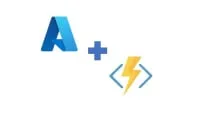
Azure Serverless Functions 
This course provides an in-depth exploration of Azure Serverless Functions, covering topics such as deployment, configuration, and integration. Participants will gain a comprehensive understanding of the platform. ▼
ADVERTISEMENT
Course Feature
![]() Cost:
Cost:
Free
![]() Provider:
Provider:
Udemy
![]() Certificate:
Certificate:
No Information
![]() Language:
Language:
English
Course Overview
❗The content presented here is sourced directly from Udemy platform. For comprehensive course details, including enrollment information, simply click on the 'Go to class' link on our website.
Updated in [March 06th, 2023]
This course provides an introduction to Azure Serverless Functions for beginners. It covers the basics of serverless computing, Azure Serverless, and Azure Services. Participants will learn how to create and deploy Azure Serverless Functions, and how to use them to build applications. The course also covers best practices for developing and managing Azure Serverless Functions. By the end of the course, participants will have a good understanding of Azure Serverless Functions and how to use them to build applications.
[Applications]
After completing this course, learners can apply their knowledge of Azure Serverless Functions to create and deploy serverless applications. They can use Azure Functions to build applications that are triggered by events, automate processes, and integrate with other Azure services. Learners can also use Azure Functions to create serverless APIs and microservices. Additionally, learners can use Azure Functions to build applications that are resilient, secure, and cost-effective.
[Career Paths]
1. Cloud Architect: Cloud Architects are responsible for designing, building, and managing cloud-based systems. They must have a deep understanding of cloud computing technologies, such as Azure Serverless Functions, and be able to develop and implement strategies for cloud-based solutions. As cloud computing continues to grow in popularity, the demand for Cloud Architects is expected to increase.
2. Cloud Developer: Cloud Developers are responsible for developing applications and services that run on cloud-based platforms. They must have a strong understanding of Azure Serverless Functions and be able to develop and deploy applications that leverage the power of the cloud. As cloud computing continues to grow in popularity, the demand for Cloud Developers is expected to increase.
3. Cloud Security Engineer: Cloud Security Engineers are responsible for ensuring the security of cloud-based systems. They must have a deep understanding of Azure Serverless Functions and be able to develop and implement security strategies for cloud-based solutions. As cloud computing continues to grow in popularity, the demand for Cloud Security Engineers is expected to increase.
4. DevOps Engineer: DevOps Engineers are responsible for automating the development, deployment, and management of cloud-based systems. They must have a strong understanding of Azure Serverless Functions and be able to develop and implement automation strategies for cloud-based solutions. As cloud computing continues to grow in popularity, the demand for DevOps Engineers is expected to increase.
[Education Paths]
1. Bachelor of Science in Computer Science: This degree path provides students with a comprehensive understanding of computer science fundamentals, including programming, software engineering, and data structures. It also covers topics such as artificial intelligence, machine learning, and cloud computing. With the increasing demand for cloud computing, this degree path is becoming increasingly popular and is a great way to gain the skills needed to work with Azure Serverless Functions.
2. Bachelor of Science in Information Technology: This degree path focuses on the application of technology to solve business problems. It covers topics such as systems analysis, database design, and network security. With the increasing demand for cloud computing, this degree path is becoming increasingly popular and is a great way to gain the skills needed to work with Azure Serverless Functions.
3. Master of Science in Cloud Computing: This degree path provides students with a comprehensive understanding of cloud computing fundamentals, including distributed computing, cloud architecture, and cloud security. It also covers topics such as big data, machine learning, and artificial intelligence. With the increasing demand for cloud computing, this degree path is becoming increasingly popular and is a great way to gain the skills needed to work with Azure Serverless Functions.
4. Master of Science in Artificial Intelligence: This degree path provides students with a comprehensive understanding of artificial intelligence fundamentals, including machine learning, natural language processing, and computer vision. It also covers topics such as robotics, deep learning, and data mining. With the increasing demand for artificial intelligence, this degree path is becoming increasingly popular and is a great way to gain the skills needed to work with Azure Serverless Functions.
Course Syllabus
Compute
DataBase and Storage
Pros & Cons

Amazing instructor

Covers basics with reallife examples

Fastpaced overview

Easy to understand

Content is awesome

Audio levels go up & down

Not clearly explained why to use Azure function

Bad audio on most videos
Course Provider

Provider Udemy's Stats at AZClass
Azure Serverless Functions provides an in-depth exploration of Azure Serverless Functions, covering topics such as deployment, configuration, and integration. Azure Serverless Functions is a cost-effective solution for businesses that need to scale applications quickly and efficiently. It allows businesses to only pay for the resources they use and not for the resources they don't need. This makes it an ideal solution for businesses that need to scale quickly and efficiently. Azure Serverless Functions gives businesses the flexibility to scale applications quickly and easily. It enables businesses to quickly and easily deploy and manage their applications without worrying about the underlying infrastructure.
Discussion and Reviews
0.0 (Based on 0 reviews)
Explore Similar Online Courses

The Midnight Quilt Show Season 2

Online User Experience (UX) Design Course

Python for Informatics: Exploring Information

Social Network Analysis

Introduction to Systematic Review and Meta-Analysis

The Analytics Edge

DCO042 - Python For Informatics

Causal Diagrams: Draw Your Assumptions Before Your Conclusions

Whole genome sequencing of bacterial genomes - tools and applications

Microsoft Azure Online Data Engineering Training

Cloud Developer using Microsoft Azure


Start your review of Azure Serverless Functions